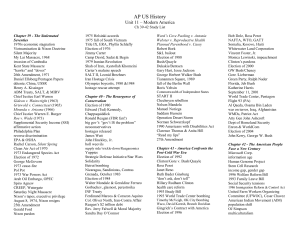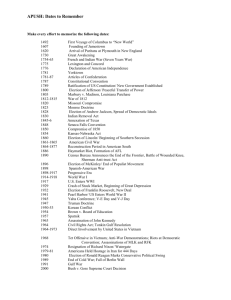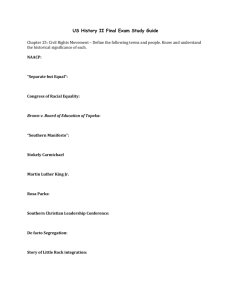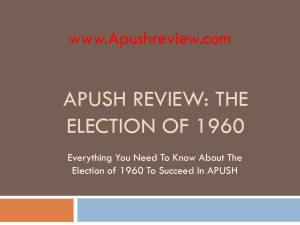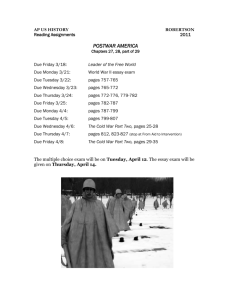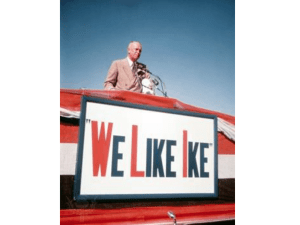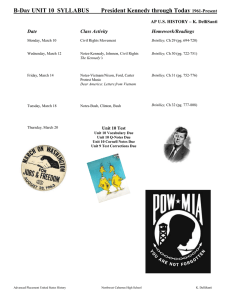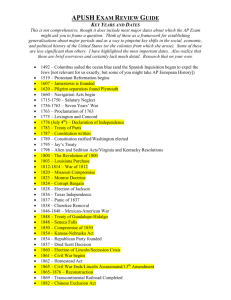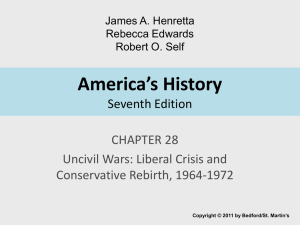APUSH
advertisement
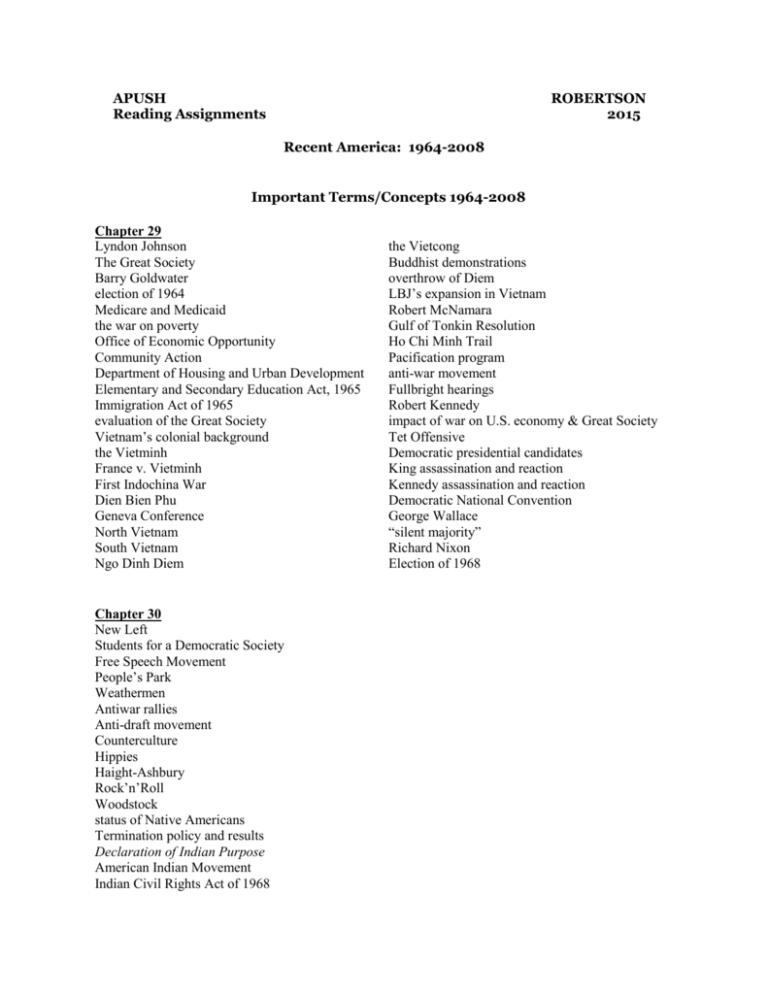
APUSH Reading Assignments ROBERTSON 2015 Recent America: 1964-2008 Important Terms/Concepts 1964-2008 Chapter 29 Lyndon Johnson The Great Society Barry Goldwater election of 1964 Medicare and Medicaid the war on poverty Office of Economic Opportunity Community Action Department of Housing and Urban Development Elementary and Secondary Education Act, 1965 Immigration Act of 1965 evaluation of the Great Society Vietnam’s colonial background the Vietminh France v. Vietminh First Indochina War Dien Bien Phu Geneva Conference North Vietnam South Vietnam Ngo Dinh Diem Chapter 30 New Left Students for a Democratic Society Free Speech Movement People’s Park Weathermen Antiwar rallies Anti-draft movement Counterculture Hippies Haight-Ashbury Rock’n’Roll Woodstock status of Native Americans Termination policy and results Declaration of Indian Purpose American Indian Movement Indian Civil Rights Act of 1968 the Vietcong Buddhist demonstrations overthrow of Diem LBJ’s expansion in Vietnam Robert McNamara Gulf of Tonkin Resolution Ho Chi Minh Trail Pacification program anti-war movement Fullbright hearings Robert Kennedy impact of war on U.S. economy & Great Society Tet Offensive Democratic presidential candidates King assassination and reaction Kennedy assassination and reaction Democratic National Convention George Wallace “silent majority” Richard Nixon Election of 1968 militant actions of AIM Wounded Knee Occupation United States v. Wheeler Latino status & demographics Operation Wetback (seriously?) Chicanos Cesar Chavez United Farm Workers bilingual education Cultural pluralism Stonewall Riot Gay Liberation Movement The Feminine Mystique Equal Pay Act Title VII of the Civil Rights Act of 1964 My Lai Massacre government treatment of antiwar groups Easter Offensive negotiations and the election of 1972 Christmas bombing Paris Accords Fall of Saigon Pol Pot and the Khmer Rouge effects of the war U.S. policy on China Nixon’s China visit SALT I Nixon Doctrine Salvador Allende CIA actions in Chile Chapter 31 Gerald Ford pardon of Nixon SALT II Election of 1976 Jimmy Carter – strengths and weaknesses economic problems Carter and human rights Camp David Accords Iranian Revolution hostage crisis Soviet invasion of Afghanistan Sunbelt politics Sagebrush rebellion Evangelical Christianity Moral Majority/ Christian Coalition the New Right Ronald Reagan National Organization for Women the new feminism changes in the 1970s Equal Rights Amendment Roe v. Wade ecology movement Rachel Carson, Silent Spring environmental issues Earth Day Environmental Protection Agency Henry Kissinger new Vietnam policy Cambodia – bombings/invasion Kent State Pentagon Papers Six-Day War Arab Oil Embargo Nixon’s domestic actions Engel v. Vitale Gideon v. Wainwright Miranda v. Arizona Baker v. Carr the Burger Court Bakke v. Regents of California Election of 1972 economic problems of the 1970s OPEC Deindustrialization Nixon’s response to stagflation Watergate (will be covered in class) Proposition 13 and the Tax revolt Election of 1980 end of hostage crisis the Reagan coalition Reaganomics deregulation Recession of 1982 National debt and the budget problem “Star Wars” Strategic Defense Initiative Reagan Doctrine Grenada Sandinistas Beirut Bombing, 1983 Terrorism Chapter 32 NAFTA Clinton’s Health Care reform Bosnia Congressional elections of 1994 Newt Gingrich 1996 welfare reform Lewinski scandal Clinton’s impeachment Kosovo evaluation of Clinton’s presidency election of 2000: candidates, outcome Bush tax cuts Bush’s position on social issues election of 2004 two-tiered economy globalization Rodney King AIDS epidemic Right to Life / Pro-Choice Movements Islamic fundamentalism Terrorism Al Qaeda the Iraq War assessment of Bush presidency election of 2008 Election of 1984 Mikhail Gorbachev Perestroika Tiananmen Square Nelson Mandela USSR dissolution Savings and Loan Crisis Iran-Contra scandal Election of 1988 George H.W. Bush Recession of 1990 Gulf War Election of 1992 Ross Perot
